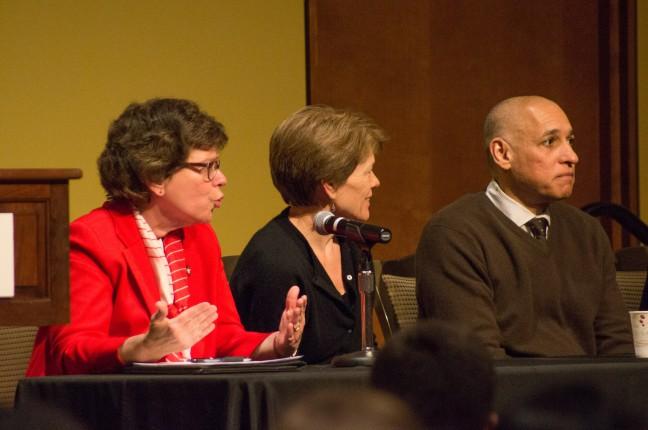Gov. Scott Walker’s budget proposal to make the University of Wisconsin System a public authority after 2017 has turned eyes toward the state of Virginia.
To some, the proposal is comparable to the Virginia model; in 2005, the state of Virginia passed the Virginia Restructuring Act, giving 15 of the state’s public four-year universities increased autonomy over areas like tuition and construction. Similarly, Walker proposed loosening ties between the UW System and the state.
Walker’s administration, Republican lawmakers and the UW College Republicans have been pointing toward the Virginia Restructuring Act as a “see how great it worked” example ever since the budget was proposed.
They are not wrong. Virginia’s university system has flourished in the years since passing the act. But there are several distinctions that must be made. People can cite Virginia all they want, but the Wisconsin model is not the same and should not be construed as such.
As previously reported in The Badger Herald, Virginia’s process was a transparent, bipartisan effort, which structured the increased university system power toward the individual campuses. Each of the 15 campuses has its own governing board.
However, the specifics of Walker’s proposal are shrouded in mystery and confusion. Experts are throwing around a lot of “I don’t knows” and “maybes,” especially when it comes to who has purview over tuition.
As far as UW education policy professor Sara Goldrick-Rab understands it, UW-Madison Chancellor Rebecca Blank probably wouldn’t be interested in the public authority model without tuition authority.
But in February, Walker said he wouldn’t be opposed to setting an indefinite tuition cap even after the two-year tuition freeze extension — during the time the system would be a public authority.
Under Walker’s proposal, however, all autonomous power would be given to the UW System Board of Regents, an 18 member board, 14 of whom the governor appoints. Individual campuses would have little jurisdiction over planning and tuition; Walker’s appointees would have that power.
In a post UW System budget surplus era, Republican legislators have chastised the System for a lack of transparency. It is time that lawmakers hold the governor and his budget bill to the same standard of clarity.
Discussion on the public authority has been rushed. The idea first surfaced in early January and lawmakers hope to pass the budget by June, allowing little time for student and stakeholder input. This is in stark contrast to Virginia, where the reform was several years in the works, gathering broad, bipartisan support before its passage.
Those directly affected by sweeping fundamental changes to the state’s public higher education system should be given enough time to fully understand the policies and weigh in on the debate.
If this reform is to succeed, it will be because it is a transparent effort with broad support and increased accountability.
Right now, that is not the case.


